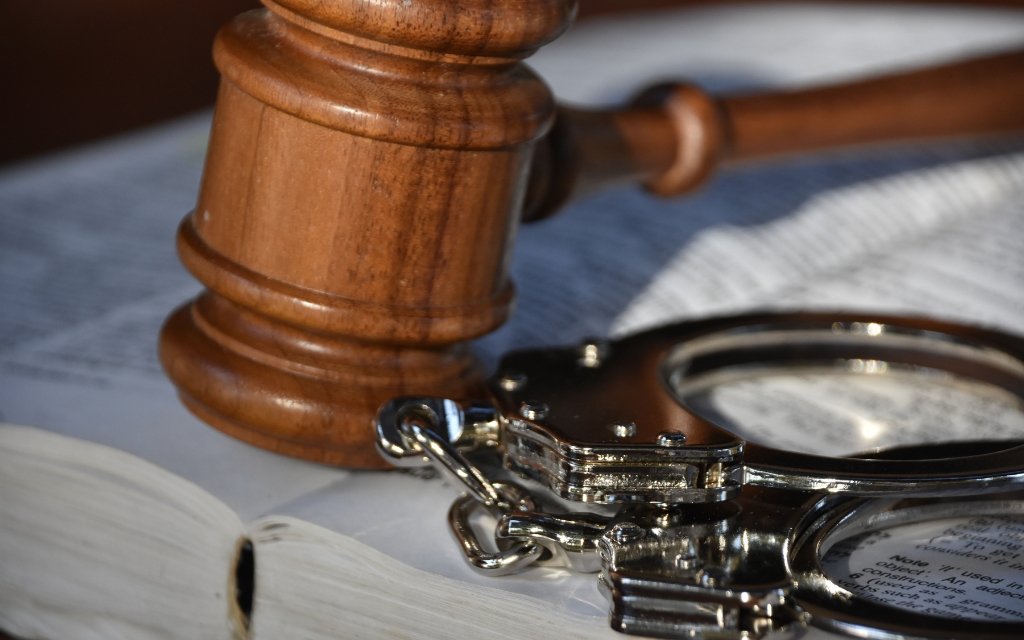Learn whether a District Attorney considered law enforcement Colorado. Understand their role, responsibilities, and involvement in the legal system.
The first time I learned about the criminal justice system, I thought everyone interacting within the system-from police officers to the very top, with judges-had been under the same big umbrella of “law enforcement.” Then, not too long ago, I came upon the question: “Is a district attorney considered law enforcement Colorado? That question stuck with me afterward, and I realized how few of us are really educated about the subtleties of those roles that make up the composition of our justice system.
So, let’s dive deep into this article and clear that confusion once and for all.
Table of Contents
What is a District Attorney supposed to do?
To understand whether a district attorney counts as law enforcement, first, we have to get clear on what a district attorney does. A district attorney might be thought of as the quarterback of the courtroom. While the police investigate the crime and arrest the suspect, it is the DA who will decide if there is sufficient evidence to file charges. Put simply, district attorneys prosecute criminal cases on behalf of the state.
The DA’s responsibilities vary widely in Colorado. It is not limited to felony cases but also extends to misdemeanors, serious traffic offenses, and many others. For example, the District Attorney serves as the chief law enforcement officer in the City and County of Denver and is responsible for prosecuting crimes and ensuring that justice is served. This title reflects the leadership function of the DA in the justice system.
The Role of the District Attorney in Colorado
District attorneys in Colorado serve in each of the state’s judicial districts. The state has 22 judicial districts with one elected DA serving in each district. The job of a DA is not only to obtain guilty verdicts but also to seek justice and follow the law. They have the authority to determine:
But here’s the kicker: while DAs work closely with law enforcement agencies, they aren’t police officers. They do not investigate the crime or arrest anyone. Instead, they take their cue from law enforcement agencies bringing cases to them. When a case crosses their desk, they assess the case and determine what route to take, hence representing the state in court.
Is the District Attorney considered law enforcement Colorado?

So, is district attorney law enforcement? It depends on how one defines “law enforcement.”
In Colorado, the DA is frequently referred to as the chief law enforcement officer in their district. The title can be misleading because that does not mean they are patrolling the streets or conducting investigations. Instead, it reflects their leadership in the criminal justice system. They oversee the legal side of law enforcement: prosecuting cases, upholding the laws, and advocating for victims.
For example, in Denver, the DA is literally a chief law enforcement officer of City and County government, meaning: the chief of all the City and County crimes. However, a DA does not carry a badge or a gun as a policeman would. Outside the courtroom, it does not mean anything.
What is the role of a District Attorney?
They simply act as a bridge between law enforcement and the courts. In summary, some of the key responsibilities undertaken by the district attorneys are highlighted below.
An easy way to conceptualize it:
If the criminal justice system were a movie, law enforcement would be the producers, gathering cast and crew, and it would fall to the district attorney to decide how the melodrama would play out in court.
Understanding the DA’s Role: A Personal Journey
Admittedly, the very first time I heard “chief law enforcement officer, I imagined this DA combined, in my imagination, qualities of a police officer and a lawyer. When I went to court in Denver, it would be the first time I observed the line of division clearly.
During the hearing, the DA worked with the witnesses and police officers to present a case against a defendant charged with burglary. The police provided the evidence, but it was the DA who pieced it all together and argued the case. Watching them in action was like seeing a chess player strategize several moves ahead, always thinking about how to counter the defense’s arguments.
That experience taught me that, though DAs and police share the same objective — justice — their roles are quite different. Still, their collaboration is indispensable. Without law enforcement, DAs wouldn’t have cases to prosecute. And without DAs, law enforcement actions wouldn’t lead to convictions.
What is the District Attorney’s Office like?
The district attorney’s office is the hub of the justice system, a place filled with activity from prosecutors, investigators, victim advocates, and administrative staff. Across Colorado, they’re processing thousands of cases each year, from the tiniest misdemeanors to major felonies.
One thing that really surprises most people is not the fact that the DA’s office puts individuals behind bars. They also participate in rehabilitation programs and diversion-type programs. So, for example, various DAs within Colorado don’t prosecute first-timers but alternatively offer them specific programs that take away the presence of a criminal record while serving the real issues that basically caused their behavior, things as addiction and mental health concerns.
Why is this a distinction that matters?

You’re maybe wondering, “Why does it make a difference, one way or another, what a DA is considered: a law enforcement official or not?” Well, that comes in the way of accountability, interrelating to other parts of the justice system, and perception by the public.
For instance, many police departments are under the purview of civilian review boards. Should DAs be held to the same standard? Some say, well, since they’re considered the chief law enforcement officer, they should face similar scrutiny. Others think their unique role as a prosecutor puts them in a different category.
FAQs
1. Is a district attorney considered law enforcement Colorado?
Yes, a DA in Colorado is usually considered a chief law enforcement officer in his or her respective judicial district. This title actually shows his or her leadership role in prosecuting crimes and bringing justice into being. Though the DAs themselves do not investigate or arrest and do not enforce laws as police officers would, they do play a critical role in processing criminal cases through their determinations about filing charges and prosecution to ensure that justice is fairly applied.
2. What does the district attorney’s office do in Colorado?
The Colorado District Attorney’s office is responsible for the prosecution of criminal cases on behalf of the state. These include:
Other offices practice rehabilitation and diversion programs with non-violent offenders in hopes of a decrease in recidivism and an effective treatment of addictions or other mental health-related issues.
3. How does the district attorney differ from police/law enforcement?
The main difference is the function they have. While police officers, for example, investigate, enforce laws, and arrest, district attorneys take care of legal processing: evaluating evidence, whether to prosecute or not, and representing the state in courts. While they both work for justice, the DA operates in the courtroom, not out on the streets.
4. What does the district attorney do in Denver, Colorado?
The District Attorney is the chief law enforcement officer for the City and County of Denver. They have responsibility for prosecuting all felonies, misdemeanors, and serious traffic offenses committed in the city. In collaboration with law enforcement, their office works diligently to ensure the prosecution of crimes, while continuing to support victims and ensuring that justice is fair in all judicial processes.
Final Thoughts
So, is a district attorney considered law enforcement Colorado? The answer isn’t as black-and-white as you might think. Though they do not wear a uniform or arrest people, they are integral to the entire law enforcement ecosystem. They are the legal backbone of the justice system, ensuring that crimes are prosecuted fairly and justice is served.
It is important to understand their role, not only for legal professionals but also for all of us as citizens. After all, the more we know about how our justice system works, the better equipped we are to advocate for fairness and accountability. And if you’re ever sitting in a courtroom, take a moment to observe the district attorney in action. You might just give yourself a newfound appreciation for how complex and collaborative the process of upholding the law in Colorado.
Additional Resources
If you’re interested in diving deeper into this topic, here are some valuable resources:


